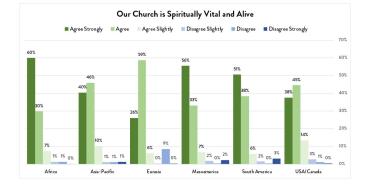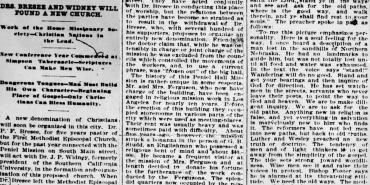Q&A: Building Trust Between Pastors and Church Boards

Q: How can church boards and pastors learn to trust each other? How is trust built?
A: The level of trust may determine whether your church board thrives or flounders. Teams that are characterized by high trust are most often also characterized by other critical elements such as unity, cohesiveness, productivity, even fun. However, while high trust can grow a team beyond expectations, low trust can fracture a team beyond recognition.
To foster trust, pastors should start with their own roles as leaders. The pastor's intimacy with Christ and his or her commitment to leadership make up the foundation of the church's effectiveness generally, and the board's specifically. Second, consider the board as a team.
Whether you read your Bible or a secular management journal, you'll find a few key characteristics for developing trust. The first is integrity, which should be no surprise. The second is vision, particularly in the face of hardship. The third is transparency.
Joseph built trust through integrity. Who he was in the darkness of prison was the same as who he was in the light of leadership. Moses developed trust by being steadfast in storms, demonstrating a pure faith in God and a focused vision while navigating big obstacles. Paul faced his failure, refusing to pretend, while at the same time recognizing the power of God to act through him.
For church boards as teams, trust grows out of intimate prayer together, a clear frequently communicated vision, and relationship building, in that order.
Boards must pray together, carefully and meaningfully. Consider meetings where prayer is the primary agenda item. There are many reasons why this is important, from the fact that it reflects obedience to the relationship-building (and, therefore, trust-building) power of corporate prayer.
Next, there must be a single, crystal-clear unifying vision that is communicated frequently. Each board member should be able to state succinctly the specific purpose of the church, whether this is referred to as 'mission' or 'vision,' as well as the board's purpose. Board members should be able to answer the 'Why are we here?' question.
Finally, boards must strike a balance between relationship-focus and task-focus. Church boards should eat, laugh, and play together (building relationships), and they should set and accomplish goals (getting things done). Both must occur to build trust.
What if trust is broken? All of the above apply, of course. The bad news is that trust is easy to break and tough to build.
The good news is that it's never too late to 'start over.' If there is a lack of trust, don't ignore it (and you'd be surprised at how many teams do just that). Instead, start right there, making rebuilding trust the board's first purpose.
Brian Charette is the associate vice president for university planning and analysis and an adjunct faculty member in the College of Business at James Madison University in Harrisonburg, Virginia. He is a member of Harrisonburg First Church of the Nazarene.
Holiness Today, 2013
Please note: This article was originally published in 2013. All facts, figures, and titles were accurate to the best of our knowledge at that time but may have since changed.




